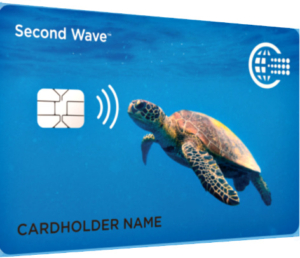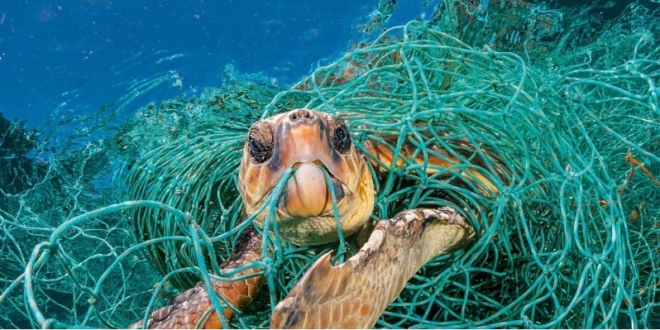A new partnership of CPI Card Group (CPI) and Visa is another step forward in reducing ocean waste by using recycled plastic to create attractive new debit, credit, and other plastic payment cards. CPI’s Second Wave ™ card is recovered from ocean-bound plastic waste, recycled, and remanufactured into new cards.

Research by CPI found that 91% of debit and credit cardholders were concerned about plastic waste and another 73% said it’s important their financial institution is environmentally-conscious. Another 57% of consumers said they were interested in cards made of recycled materials and 58% indicated they would switch financial institutions if features and benefits were available on recycled plastic cards.
“We applaud Visa’s commitment to sustainability and its first-to-market approach,” said Guy DiMaggio, SVP and General Manager, Secure Card Solutions, CPI Card Group. “Taking steps to protect the Earth is an everyday priority for CPI. We hope our efforts continue to empower issuers and cardholders everywhere to help reduce the impact of plastic waste on our planet.”
Upcycled cards make business sense

The Earthwise™ High Content Card is produced using rPETG – a type of upcycled plastic. “Upcycled” takes plastic waste and gives it a second life and new function. CPI uses its manufacturing systems and innovation to create a payment card that combines post-industrial rPETG with the essential, non-plastic components, including the EMV chip, antenna, and adhesives, to create a card containing up to 98% upcycled plastic, depending on the final card design for each payments card.
The new card joins Earth Elements™, CPI’s portfolio of eco-friendly payment cards, which includes Second Wave™, the first to market, EMV® compliant, dual interface capable, high-quality payment card featuring a core made with recovered ocean-bound plastic.
Globally, 300 million tons of plastic is produced every year and 8 million tons of plastic waste is dumped into the ocean every year according to the environmental group Plastic Oceans. The organization estimates 150 million tons of plastic are now floating in the world’s oceans.
Environmentally responsible companies, including financial institutions and many other businesses recognize that waste reduction and recycling are simply better for business, communities, and the environment, not to mention corporate reputation.

“Visa is committed to advancing sustainability in everything we do, from the 100% renewable electricity that processes transactions in our data centers, to the sustainable card materials coming to cardholders’ wallets,” said Douglas Sabo, vice president and head of corporate responsibility and sustainability at Visa Inc. “Our collaboration with CPI signifies a further milestone in our efforts to drive our goal of inclusive growth with a commitment to protecting the environment. We’re proud that this offering will ultimately benefit the entire payments industry and environment.”
Next time you’re making that card payment or contactless tap to pay, take a moment to look and see if your card is made of recycled material and if not, ask your bank why not?
You can find out more information about CPI Card Group here and support the global environmental programs of Plastic Oceans here.
Masthead photo courtesy of Plastic Oceans Canada, other visuals via CPI Card Group and Visa








LET’S CONNECT